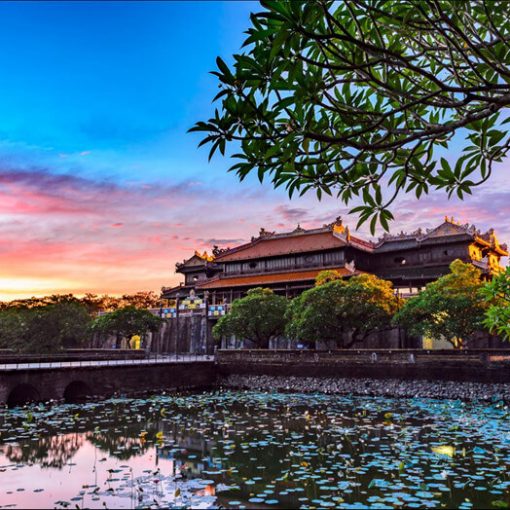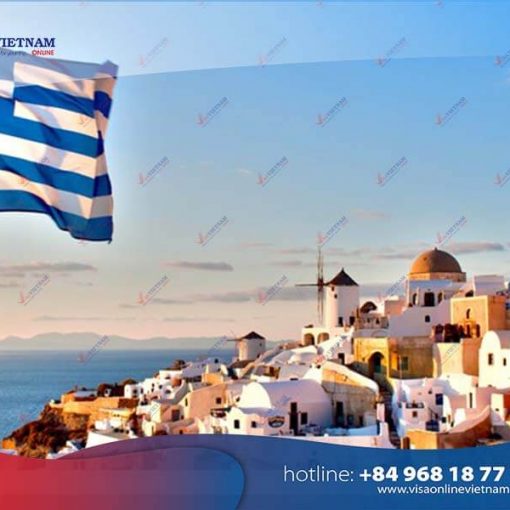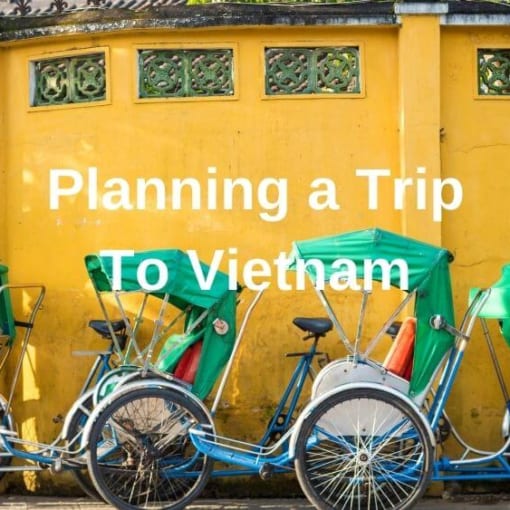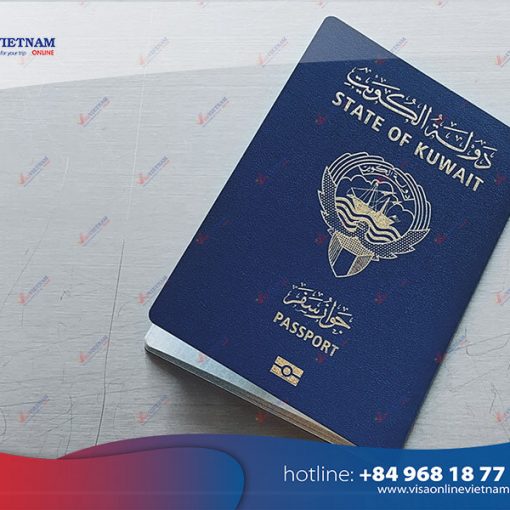As one of the most vibrant and alluring destinations in Southeast Asia, Vietnam has captured the hearts of many Indian travelers. Whether you’re planning a scenic adventure, a culinary exploration, or a business venture, navigating the visa requirements can be a crucial first step in your journey. In this comprehensive article, we’ll delve into the details of the Vietnam visa for Indians, covering the different visa types, application processes, and essential information to ensure a seamless and enjoyable experience in the Land of the Rising Dragon.
Does Indians need visa for Vietnam?

Yes, all Indian citizens are required to obtain a valid visa for every visit to Vietnam, unless they have a valid temporary residence card or a 5-year Vietnam visa. This requirement applies regardless of the purpose of the visit, whether it’s for tourism, business, or any other reason.
Visa-free Entry for Indian Citizens
There are a few exceptions where Indian citizens can enter Vietnam without a visa:
- Visa Exemption for Business Travelers: Indian citizens holding a valid APEC Business Travel Card (ABTC) can enter Vietnam without a visa for a maximum stay of 60 days.
- Visa Exemption for Transit Passengers: Indian citizens who are transiting through Vietnam and not leaving the airport’s international transit area can stay in Vietnam for up to 24 hours without a visa.
- Visa Exemption for Diplomatic and Official Passport Holders: Indian citizens holding diplomatic or official passports can enter Vietnam without a visa for a maximum stay of 30 days.
Visa Requirements for Indian Citizens
For all other visits, Indian citizens must obtain a valid Vietnam visa before their trip. The visa requirement applies to both short-term and long-term stays in Vietnam.
Vietnam visa types and validity for Indians
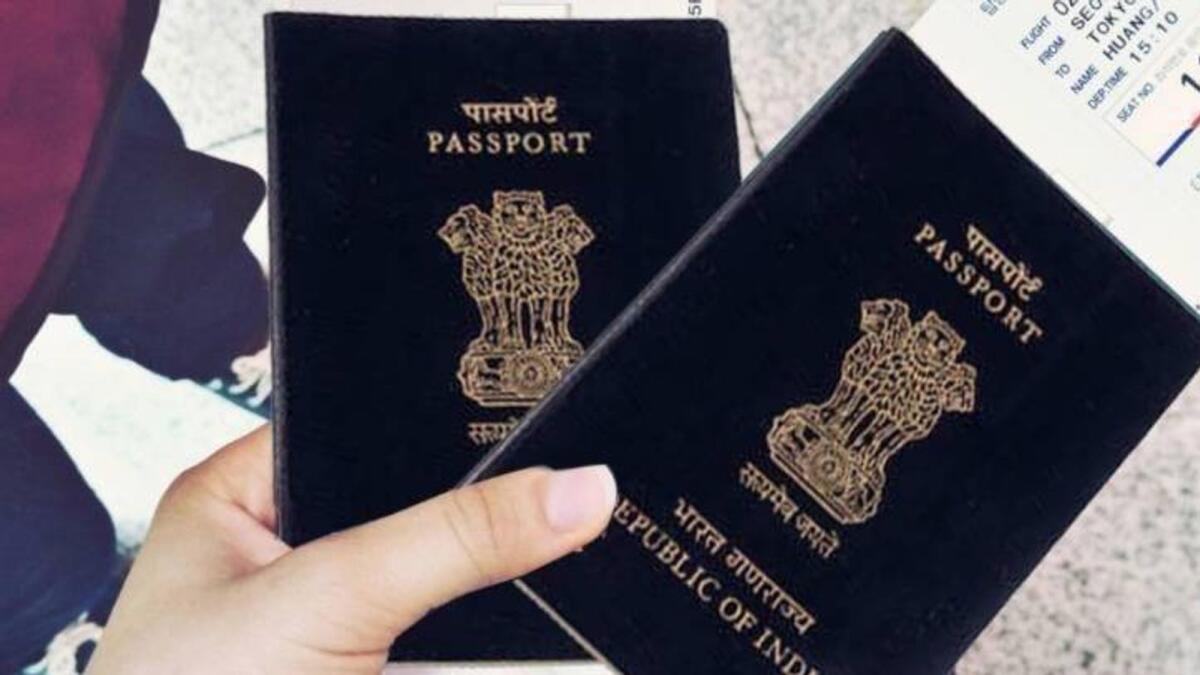
There are several types of Vietnam visas available for Indian citizens, each with its own specific requirements and eligibility criteria. Let’s explore the different visa options:
1. Vietnam eVisa (Electronic Visa)
The Vietnam eVisa (electronic visa) is a popular option for Indian citizens visiting Vietnam for tourism or business purposes. This e-visa allows for a maximum stay of 30 days in Vietnam, with both single-entry and multiple-entry options available.
2. Vietnam Visa on Arrival (VOA)
The Vietnam Visa on Arrival is another option for Indian citizens, particularly those who need to obtain a visa quickly or have an emergency situation. This visa is available for both tourism and business purposes, with a maximum stay of 30 days.
3. Vietnam Visa at Embassy/Consulate
Indian citizens can also apply for a Vietnam visa directly at the Vietnamese embassy or consulate in India. This option is suitable for those who require a longer stay, a specific visa type (such as a business visa or a work visa), or have complex travel plans that may not be easily accommodated by the eVisa or Visa on Arrival.
4. Vietnam Visa through a Travel Agency
For added convenience, Indian citizens can also opt to have their Vietnam visa application processed through a reputable travel agency or visa service provider. These agencies handle the entire visa application process on your behalf, ensuring a smooth and hassle-free experience.
Visa Validity and Duration
The validity and duration of the Vietnam visa for Indian citizens vary depending on the visa type:
- Vietnam eVisa: Up to 30 days, single or multiple entry
- Vietnam Visa on Arrival: Up to 30 days, single or multiple entry
- Vietnam Visa at Embassy/Consulate: Varies, typically up to 90 days for tourist visas and up to 1 year for business visas
It’s important to note that the actual duration of stay permitted in Vietnam may be less than the visa validity, as determined by the Vietnamese immigration authorities upon your arrival.
Can Indian citizens apply for Vietnam evisa?
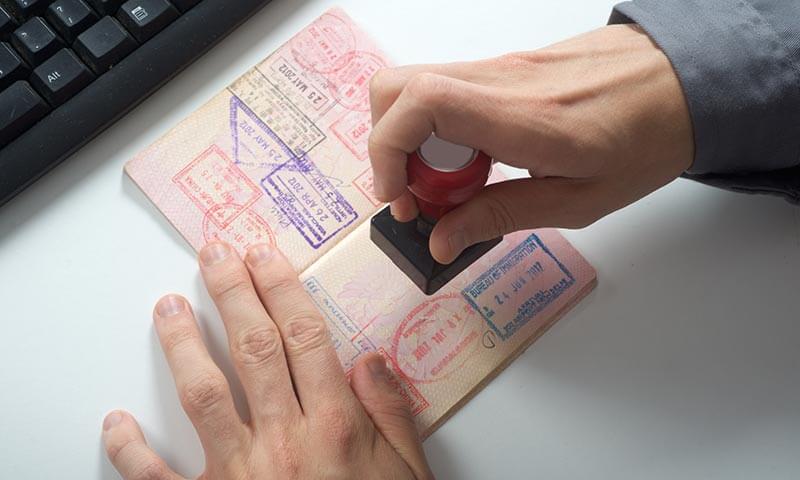
Yes, Indian citizens can apply for the Vietnam eVisa (electronic visa) to enter the country. The Vietnam eVisa is a popular and convenient option for Indian travelers, as it allows for a streamlined online application process and faster processing times compared to traditional visa application methods.
Eligibility for Vietnam eVisa
To be eligible for the Vietnam eVisa, Indian citizens must meet the following criteria:
- Purpose of Visit: The eVisa is available for tourism, business, or a combination of both purposes.
- Duration of Stay: The eVisa allows for a maximum stay of up to 30 days in Vietnam, with both single-entry and multiple-entry options available.
- Valid Passport: Applicants must have a valid passport with at least 6 months of remaining validity and at least one blank page for visa stamping.
Vietnam eVisa Application Process for Indians
The Vietnam eVisa application process for Indian citizens is relatively straightforward and can be completed entirely online. Here’s a step-by-step guide:
- Gather Required Documents: Ensure that you have all the necessary documents, such as a valid passport, passport-sized photograph, and any other required supporting documents.
- Complete the Online Application: Visit the official Vietnam eVisa website and fill out the online application form with your personal and travel information.
- Pay the Visa Fee: Pay the required visa fee, which can be done securely online using a credit/debit card or other accepted payment methods.
- Wait for Approval: The processing time for the Vietnam eVisa typically takes 1-3 business days, depending on the volume of applications.
- Receive the eVisa: Once your application is approved, you will receive the Vietnam eVisa letter via email, which you can then print and present upon arrival in Vietnam.
It’s important to note that the Vietnam eVisa is only valid for entry through specific international airports and land border crossings in Vietnam. Be sure to check the list of approved entry points before finalizing your travel plans.
What are requirements to get Vietnam evisa for Indians?
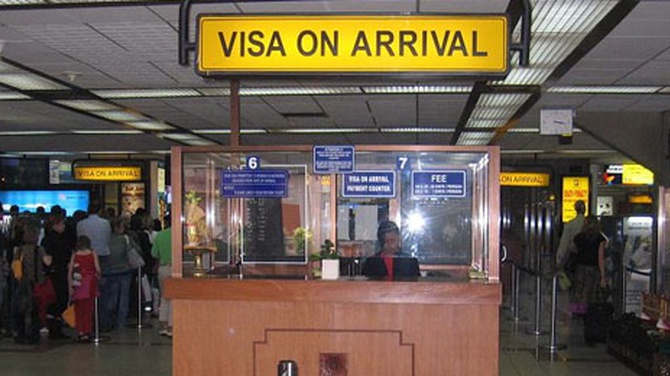
To successfully apply for a Vietnam eVisa, Indian citizens must meet the following requirements:
1. Valid Passport
Your passport must be valid for at least 6 months beyond the intended stay in Vietnam and have at least one blank page for the visa stamp.
2. Passport-sized Photograph
You will need to upload a recent, high-quality passport-sized photograph that meets the required specifications.
3. Purpose of Visit
The Vietnam eVisa is available for tourism, business, or a combination of both purposes. You will need to indicate the purpose of your visit during the application process.
4. Travel Dates
You will need to provide the intended dates of your arrival and departure from Vietnam. The eVisa is valid for a maximum stay of 30 days.
5. Payment of Visa Fee
The Vietnam eVisa application fee must be paid online during the application process. The fee can be paid using a credit/debit card or other accepted payment methods.
6. Email Address
You will need to provide a valid email address to receive the approved eVisa letter, which you will need to present upon arrival in Vietnam.
7. Travel Insurance (Optional)
While not strictly required, it is recommended to have a valid travel insurance policy that covers your stay in Vietnam.
Once you have gathered all the necessary documents and information, you can proceed with the online application for the Vietnam eVisa.
Vietnam eVisa Cost and Processing time for Indian citizens
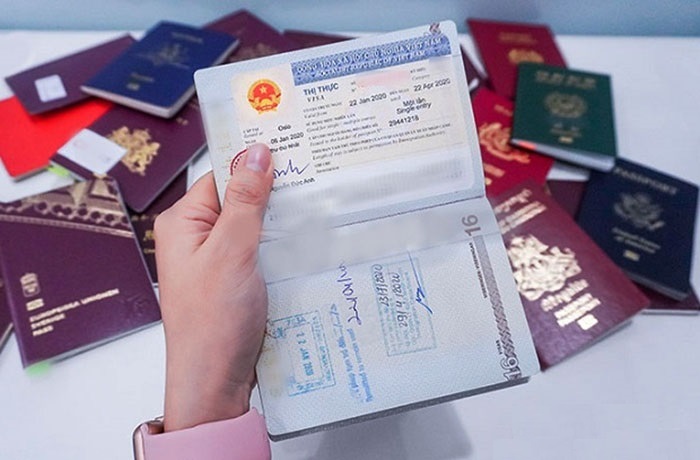
The cost and processing time for the Vietnam eVisa for Indian citizens can vary depending on the type of visa and the service provider you choose.
Vietnam eVisa Fees for Indians
The standard Vietnam eVisa fee for Indian citizens is as follows:
| Visa Type | Single Entry | Multiple Entry |
|---|---|---|
| Vietnam eVisa | USD 25 | USD 50 |
Please note that additional fees may be charged by some service providers or if you require expedited processing.
Vietnam eVisa Processing Time for Indians
The processing time for the Vietnam eVisa for Indian citizens can vary, but generally falls within the following timelines:
- Standard Processing: 1-3 business days
- Expedited Processing: 1 business day
It’s important to apply for your Vietnam eVisa well in advance of your planned travel dates to ensure that your visa is approved in time. The processing time may be longer during peak travel seasons or if there is a high volume of applications.
In case of urgent or last-minute travel, you may consider the Vietnam Visa on Arrival option, which can be obtained more quickly but requires additional steps upon arrival in Vietnam.
How to Get Vietnam eVisa for Indians
Applying for a Vietnam eVisa as an Indian citizen is a straightforward process that can be completed entirely online. Here’s a step-by-step guide:
Step 1: Visit the Official Vietnam eVisa Website
Go to the official Vietnam eVisa website and select “Apply for eVisa” to begin the application process.
Step 2: Fill Out the Application Form
Provide the required information, such as your personal details, passport information, travel dates, and purpose of visit.
Step 3: Upload the Necessary Documents
Attach a digital copy of your passport and a recent passport-sized photograph that meets the specified requirements.
Step 4: Pay the Visa Fee
Make the required visa application fee payment securely online using a credit/debit card or other accepted payment methods.
Step 5: Wait for Visa Approval
The processing time for the Vietnam eVisa typically takes 1-3 business days. You will receive the approved eVisa letter via email once your application is processed.
Step 6: Print the eVisa Letter
Print the approved eVisa letter, which you will need to present to the Vietnamese immigration authorities upon arrival.
Step 7: Arrive in Vietnam
When you arrive in Vietnam, present the printed eVisa letter along with your passport to the immigration officials for entry.
It’s important to note that the Vietnam eVisa is only valid for specific entry points in the country, so be sure to check the list of approved ports of entry before finalizing your travel plans.
Can I enter Vietnam with my evisa at any point of entry?
No, the Vietnam eVisa is not valid for entry at all ports of entry in the country. Indian citizens holding a Vietnam eVisa can only use it to enter Vietnam through the following approved entry points:
Approved International Airports for eVisa Entry
- Tan Son Nhat International Airport (Ho Chi Minh City)
- Noi Bai International Airport (Hanoi)
- Da Nang International Airport (Da Nang)
- Cam Ranh International Airport (Nha Trang)
- Phu Quoc International Airport (Phu Quoc)
Approved Land Border Crossings for eVisa Entry
- Moc Bai (Cambodia-Vietnam border)
- Lao Cai (China-Vietnam border)
- Gia Lam (Laos-Vietnam border)
If you plan to enter Vietnam through any other international airport or land border crossing, you will need to apply for a different type of visa, such as the Vietnam Visa on Arrival or a visa obtained from a Vietnamese embassy or consulate.
It’s crucial to double-check the approved entry points for the Vietnam eVisa before finalizing your travel arrangements to ensure a smooth arrival process.
Is it possible to extend my stay in Vietnam beyond my evisa duration?
Yes, it is possible to extend your stay in Vietnam beyond the duration of your Vietnam eVisa, but the process can be a bit more complex.
Extending Your Vietnam eVisa
If you need to extend your stay in Vietnam, you can apply for an extension of your eVisa prior to the expiration of your current visa. This can be done by submitting an application and supporting documents to the Vietnamese immigration authorities.
The requirements and processing time for eVisa extensions may vary, and it’s recommended to apply for the extension well in advance of your intended departure date. Keep in mind that extending your eVisa may incur additional fees.
Changing to a Different Visa Type
Alternatively, you can consider changing your visa type if you need to stay in Vietnam for a longer period or for a different purpose, such as business or employment. This may involve applying for a new visa at a Vietnamese embassy or consulate in your home country or in a neighboring country.
It’s important to note that changing your visa type may require you to exit Vietnam and re-enter with the new visa, which can be a more complicated and time-consuming process.
Regardless of the option you choose, it’s crucial to plan ahead and ensure that you have the necessary documentation and approvals in place to extend or change your visa status in Vietnam.
Do I have to enter Vietnam on the exact date specified in my evisa letter?
No, you do not have to enter Vietnam on the exact date specified in your Vietnam eVisa letter. The eVisa letter typically provides a range of valid entry dates, within which you can enter the country.
Vietnam eVisa Entry Date Range
The Vietnam eVisa letter will generally specify a validity period, such as “Valid for entry from [start date] to [end date].” As long as you enter Vietnam within this specified date range, your eVisa will be valid.
It’s important to note that the entry date range on your eVisa letter is the latest you can enter Vietnam. You can, however, enter the country on any date within that range.
Flexibility in Entry Dates
This flexibility in entry dates is particularly useful if your travel plans change or if you need to adjust your arrival date for any reason. As long as you enter Vietnam within the valid date range, your eVisa will be accepted by the immigration authorities.
However, it’s important to ensure that you depart Vietnam before the expiration of your eVisa, as overstaying the visa duration can result in penalties or issues at the border upon your departure.
Frequently Asked Questions
1. Can I apply for a Vietnam eVisa if I already have a valid visa?
Yes, you can apply for a Vietnam eVisa even if you already have a valid visa. The eVisa can be a more convenient option, especially for short-term visits or last-minute travel plans.
2. Can I apply for a Vietnam eVisa on behalf of my family members?
Yes, you can apply for a Vietnam eVisa on behalf of your family members, such as your spouse and children. Each family member will need to have their own eVisa application and supporting documents.
3. Do I need to provide a hotel booking or itinerary for the Vietnam eVisa?
No, you do not need to provide a hotel booking or a detailed itinerary when applying for a Vietnam eVisa. However, you may be asked to provide information about your intended travel dates and purpose of visit.
4. Can I use the Vietnam eVisa for business purposes?
Yes, the Vietnam eVisa can be used for both tourism and business purposes. If you are traveling to Vietnam for business, you should indicate this in your eVisa application.
5. What if I lose my Vietnam eVisa letter?
If you lose your Vietnam eVisa letter, you can request a duplicate copy from the Vietnamese immigration authorities. There may be a fee associated with this service, and the processing time may vary.
Tips for smooth and faster processing of Vietnam Visa for Indians
To ensure a seamless visa application process and a hassle-free entry into Vietnam, consider the following tips:
- Apply Early: Apply for your Vietnam visa, whether it’s an eVisa or a traditional visa, well in advance of your travel dates. This will give you ample time to address any issues or delays that may arise during the application process.
- Provide Accurate Information: Double-check all the details you provide in your visa application, such as your personal information, travel dates, and purpose of visit. Inaccuracies or missing information can lead to delays or even the rejection of your application.
- Gather Required Documents: Ensure that you have all the necessary documents, such as a valid passport, passport-sized photograph, and any supporting documents, before starting the application process.
- Consider Expedited Processing: If you’re pressed for time, you can opt for expedited processing of your Vietnam eVisa, which can reduce the processing time to just 1 business day.
- Use Reliable Service Providers: If you’re applying for a Vietnam visa through a travel agency or visa service provider, make sure to choose a reputable and experienced one to ensure a smooth and efficient process.
- Download the Approved eVisa: Once your Vietnam eVisa is approved, be sure to download and print the eVisa letter, as you’ll need to present it upon arrival in Vietnam.
- Check Entry Requirements: Confirm the list of approved entry points for your Vietnam eVisa and ensure that your travel plans align with the visa’s entry requirements.
- Arrive Early at the Airport: When entering Vietnam, arrive at the airport a few hours before your scheduled departure to allow ample time for the immigration and visa verification process.
- Consider Fast-track Services: To further streamline your arrival experience, consider opting for Vietnam’s fast-track services, which can help you bypass long queues at immigration.
- Keep Copies of Your Visa: Make sure to keep a copy of your Vietnam visa, either digital or physical, in case you need to present it during your stay or upon departure.
By following these tips, you can help ensure a smooth and hassle-free visa application process and a seamless entry into Vietnam as an Indian citizen.
Conclusion
Navigating the Vietnam visa requirements for Indian citizens can seem daunting at first, but with the availability of the Vietnam eVisa program, the process has become much more streamlined and convenient. Indian citizens can easily apply for a Vietnam eVisa online, providing them with a hassle-free way to obtain authorization to enter the country for tourism or business purposes.
Understanding the different types of Vietnam visas available, the requirements for Indian citizens to apply for an eVisa, and the flexibility in entry dates provided by the eVisa system are essential for a smooth travel experience. By following the tips outlined above, Indian travelers can expedite their visa application process and ensure a seamless entry into Vietnam.
Whether you’re planning a leisurely vacation to explore Vietnam’s rich culture and natural beauty or a business trip to engage with local partners, having the necessary visa documentation in order is crucial. With the information provided in this guide, Indian citizens can confidently navigate the Vietnam visa process and look forward to an enriching travel experience in this captivating Southeast Asian destination.

